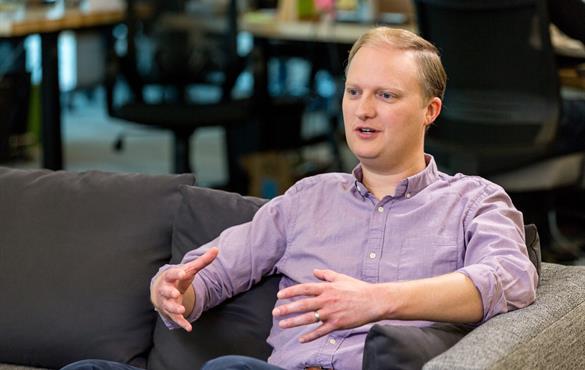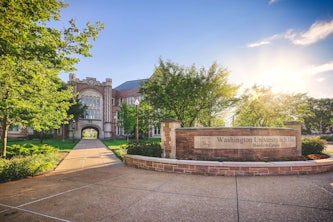Charting a Course
Alumnus Josh Tyler at his team at Course Hero are working to improve graduation rates through innovative tools

Course Hero executive Josh Tyler (BS '99) engineers tools to navigate educational journeys
Josh Tyler wants to help you graduate.
As executive vice president of engineering at Redwood City, Calif.-based Course Hero, he and his team develop a platform to share crowd-sourced lecture notes, study guides, practice problems, videos and other digital resources to supplement classroom instruction and learning. And as their in-house capabilities and technical expertise have expanded, so has the company's mission.
"We are moving way beyond helping students with homework," Tyler says. "I think we will be able to materially improve graduation rates, and to work on something where that is the outcome is really exciting to me."
As the adage goes, there are only two options in Silicon Valley: You are growing or dying. Course Hero is in a high-growth mode, moving from a handful of employees a few years ago to about 140 today. It is hiring more senior-level managers, building richer products and investing in artificial intelligence and machine learning to complement its software development. It also recently expanded a fellowship program to support eight outstanding university faculty with a "genius grant."
Tyler, too, has embraced change and growth in his own life since graduating from Washington University nearly 20 years ago. He made the move from the Midwest to northern California, jumped from robotics startups to a company focused on education and, most recently, took a turn as Course Hero's chief people officer — in charge of human resources and strategic planning — before returning to lead its software engineering department.
Tyler joined Course Hero in 2014 as vice president of engineering. He built upon his experience in management and sharpened the people skills necessary to lead a large group of developers. The following year he even wrote a book on the subject, "Building Great Software Engineering Teams: Recruiting, Hiring, and Managing Your Team from Startup to Success."
When offered the opportunity in 2016 to become the company's first chief people officer, Tyler saw a way to influence not only a team of employees but the whole enterprise. He stepped into the role for about a year, and although he realized he thrived best as an engineer on the technical side of things, he has been able to apply many lessons of that HR experience to his current role.
"As I helped other people develop their departments and figure out what was and wasn't working, I learned I needed to do the same thing within engineering in terms of developing our team's portfolio of technical skills, people management skills, communication and recruiting," Tyler says.
"At one time I thought building out the next level of leadership would involve finding other people like me because my skill set worked for me. But I've learned I need people who challenge me and make us a better team together. Finding the right balance in the core leadership team is important."
Tyler says much of his adaptability traces back to the rigorous and entrepreneurial approach to problem solving he first developed as a student at Washington University.
Tyler left his home state of Michigan to attend college in St. Louis after visiting the WashU campus and finding the faculty and staff to be remarkably accessible. He had an interest in hard science and intended to major in physics. But with some faculty encouragement, he took Computer Science 101 and quickly changed course. He earned a bachelor of science degree in applied science with a major in computer science in 1999.
"I loved learning the math that goes into how computers work and the systems that connect them," Tyler says. "Computer science puts interesting things to immediate use doing things that are very powerful."
Tyler credits former professors Kenneth and Sally Goldman — now both at Google — and Professor Ron Cytron among those who inspired him along the way.
"For a whole generation of young computer scientists, they were extremely influential," Tyler says. "They were brilliant and showed the power of the field. Today computers are so ingrained in the modern world that almost any device that isn't made of wood has a computer in it. Understanding computer software is almost required to understand the world as it is being built now."
WashU alumnus Steve Cousins, founder and chief executive of Silicon Valley robotics firm Savioke and former CEO of Willow Garage Inc., was also instrumental in Tyler's career. Cousins recruited Tyler for his first internship, which prompted Tyler's migration to the San Francisco Bay area where he earned a master's degree, also in computer science, from Stanford University in 2002.
"Washington University really prepared me for my career," Tyler says. "There was tremendous accessibility to professors and mentorship, and that encouraged a level of creativity and entrepreneurialism that has translated well in a place like Silicon Valley that has a similar culture. And along the way, I have happened to work with a lot more people from WashU than you might expect, and they have all been great. It's a school that encourages people to come into their own with support."



